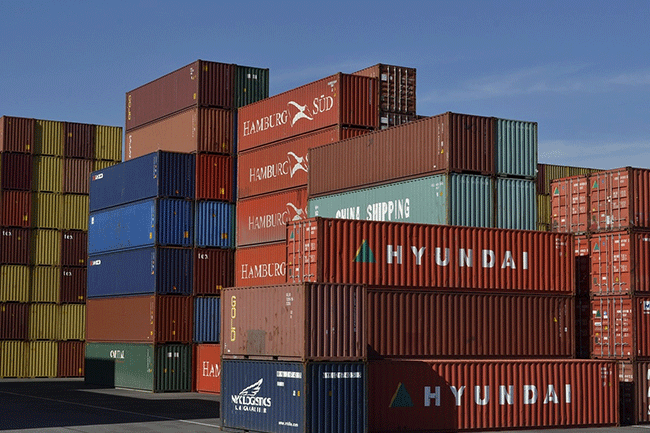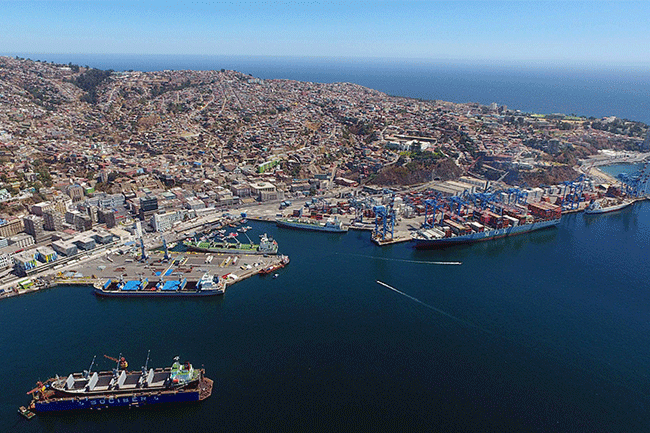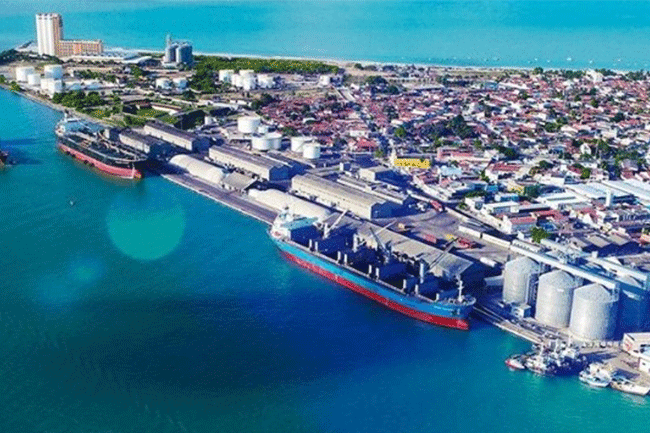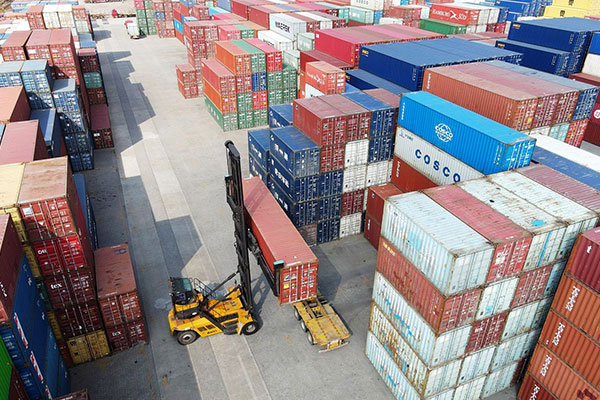- Shanghai Zhongshen International Trading Co., Ltd. – Your reliable partner with 20 years of import/export agency service expertise.

I. Insights into the Import Trade Situation and Market Demand for German Ground Coffee
In recent years, China’s coffee-consumption market has expanded rapidly at a compound annual growth rate of 15%. Driven by twin demand for freshly brewed and instant coffee, the need for high-quality imported raw materials keeps climbing. As the EU’s core coffee-processing nation, Germany supplies ground coffee favored by domestic chain brands and specialty roasters thanks to its rigorous roasting techniques (e.g., the “Viennese Roast”), a stable Arabica-to-Robusta ratio (typically 70 % Arabica + 30 % Robusta), and EU food-grade production standards that comply with the EC 1169/2011 labeling regulation.
From the perspective of the international trade environment, under the framework of the China-EU Comprehensive Agreement on Investment, the import tariff on coffee powder (HS code 09012100) has been reduced from the MFN rate of 15% to the agreement rate of 8% (2023 data). However, attention must be paid to the EU’s “green barriers” on agricultural exports—such as the Carbon Border Adjustment Mechanism (CBAM), which took effect in 2024 and may impose additional costs on the high-emission roasting stage. Moreover, against the backdrop of the Russia-Ukraine conflict, the Baltic Sea–ChinaMaritime transportFluctuations in shipping route logistics timeliness (average delays of 3–5 days) and the impact on re-export business to RussiaConvert foreign exchange into RMBRestrictions, toImport Agent Servicesplaces higher demands on risk management capabilities.
II. Core Competencies of Import Agency: Document Processing and End-to-End Logistics Management
(I) Document Processing: The "Digital Pass" for Compliant Customs Clearance
The import of German ground coffee involves 12 categories of core documents, and the agent must maintain full control over their completeness and consistency throughout the entire process:
- Basic Trade Documents: Commercial invoice (must separately list FOB price, freight, and insurance), packing list (specify net/gross weight per carton and shipping marks), bill of lading (it is recommended to choose the carrier’s master bill of lading [MBL] to avoid the document-exchange risk associated with a house bill of lading [HBL]);
- Certificate of Origin and Quality: European UnionOrigin Certificate(Form EUR.1, to be issued by the German Chamber of Commerce), official German sanitary certificate (issued by the BVL, the certification body of the Federal Office of Consumer Protection and Food Safety under the German Federal Ministry of Food and Agriculture), and third-party test report (e.g., SGS pesticide-residue testing covering 200+ EU MRL standards);
- Import-specific documents: Importer filing number (to be completed in advance on the GACC “Internet + Customs” platform), Chinese label sample (must comply with GB 7718 General Rules for the Labeling of Prepackaged Foods, including country of origin and domestic agent information).
Zhong Shen International Trade Co., Ltd.With a decade of experience as a coffee-products distributor, we have established a “three-tier review mechanism”: the business team conducts an initial check on document logic (e.g., ensuring the gross weight on the bill of lading matches the packing list); the compliance team re-examines regulatory alignment (e.g., verifying that the sanitary certificate’s validity does not exceed 12 months); and the customs affairs team pre-enters the data into the National Single Window for customs verification (to prevent HS-code misclassification—note that the tariff gap between 09012100 and 09012200 is 5%).
(II) Logistics Management: Transit-Time Control from the Port of Hamburg to Chinese Warehouses
The mainstream shipping method for German coffee powder is sea freight (accounting for 85%) andAir freight(Urgent Order):
- Ocean shipping solution: Prioritize the direct Hamburg–Qingdao/Shanghai service (transit time 28–32 days); the forwarder must book space 21 days in advance and apply for “free time at destination” (typically aiming for 7 days). Given the hygroscopic nature of the cargo, require the carrier to provide the combination of “dry container + moisture-proof paper + humidity data logger,” and remotely monitor in-box humidity via IoT devices before arrival (must be ≤60%).
- Air Freight Solution: Frankfurt–Beijing/Guangzhou all-cargo freighter (transit time 8–10 days). Ensure the consignee details on the air waybill (AWB) and the commercial invoice are identical to prevent customs clearance delays at the destination airport;
- Special scenarios: In Russia re-export operations, for cargo transiting via the Port of Saint Petersburg, the agent can coordinate with VTB Bank (Russiaforeign tradeThe bank offers a "dual-currency settlement corridor," enabling direct CNY-RUB clearing to bypass SWIFT restrictions, cutting the settlement cycle to T+3 (compared with the usual T+7).
III. Step-by-Step Guide to the Full Import Process: 9 Key Milestones from Inquiry to Feedback
- Customer Consultation Phase: Four key pieces of information must be clarified—coffee powder type (roast level: light/medium/dark; bean origin: single-origin/blend), annual import volume (affects choice between full-container-load FCL or less-than-container-load LCL), customs clearance port (e.g., choosing Qianhai, Shenzhen, grants access to the “two-step declaration” facilitation), and target end market (B2B brands/retail channels/C2C e-commerce).
- Negotiation and Contract Signing: Focus on reviewing the trade terms (CIF is recommended; have the agent control the insurance clause and take out “All Risks + Taint of Odor Risk”) and the payment method (for large orders, “30 % deposit + 70 % against copy of B/L” is advised to avoid the risk of 100 % T/T in advance).
- Orders & Payment: Complete the import payment filing through the bank foreign exchange management system (ASOne); if it involves?L/C?(L/C), it must be made clear that "soft clauses" are to be avoided (for example, a clause stating "the exporter must provide a quality confirmation letter signed by the applicant of the L/C" is considered a risky clause).
- Production supervision: For customized baking requirements (e.g., a customer-specified “200 °C × 15 min” baking profile), the agent may commission the local German SCS certification body to station inspectors on site and issue a “Production Process Conformity Report.”
- Customs Compliance: When pre-entering, accurately declare the "ingredient content" (e.g., caffeine ≤0.15%) and "packaging specifications" (25 kg/bag or 1 kg/can), calculate the customs duty-assessed value (CIF price = goods value + freight + insurance), and pay the import VAT (9%) and customs duty (8%).
- Delivery and Distribution: After customs clearance, arrange a short-haul transfer from the port to the regional warehouse (select a GSP-certified warehouse with food-storage qualifications), supporting “one-piece dropshipping” (for e-commerce clients) or “bulk distribution” (for chain brands).
- Quality Assurance: Submit samples to the customs-designated laboratory (e.g., CCIC) for testing, focusing on aflatoxin B1 (≤5 μg/kg) and microbiological indicators (total plate count ≤10^4 CFU/g). Non-conforming products trigger the "return/destroy" procedure and initiate responsibility traceability.
- Summary Feedback: Provide the "End-to-End Import Cost Analysis Report" (including breakdowns of freight, duties, insurance, etc.) and the "Quality Traceability File" (full-chain data from the German plant to the China end-user), and complete the final payment settlement.
IV. Certification Reminders and Compliance Risk Alerts
Special note: Zhongshen International Trade does not directly provide product certification services, but clients must be advised that the following certifications are mandatory for customs clearance or sales:
- Entry Inspection and Quarantine Requirements: Prior to import, the "Registration of Overseas Food Manufacturers for Import" must be completed (via the "Imported Food" section on the General Administration of Customs of ChinaCosmeticsImport and exportCheck whether it has already been registered in the "Commercial Filing System";
- EU Compliance Certificate: If the coffee powder contains additives (e.g., anti-caking agent silicon dioxide), technical documentation compliant with the EU Food Additives Regulation (EC 1333/2008) must be provided;
- Domestic Sales Qualification: Terminal must provide food service enterprises with a Food Operation License; e-commerce sales must comply with the Measures for Investigating and Handling Illegal Acts Concerning Online Food Safety.
Risks arising from failing to complete the above certification include: customs placing the shipment under inspection (inspection rate rises from the usual 5% to 30%), goods being held for processing (storage fees of 500–800 RMB per day), and even return of the shipment (return costs are roughly 20% of the goods’ value). Clients are advised to initiate the certification process three months in advance and may engage a third-party certification body (e.g., SGS, TüV) to handle it.
Conclusion: A professional agent is the "efficiency engine" for coffee powder imports
German coffee powder imports involve multi-dimensional coordination across trade, logistics, and compliance. Leveraging 20 years of agency experience, Zhongshen International Trade relies on "precise document review + end-to-end logistics control + in-depth compliance interpretation" to help clients avoid over 90% of operational risks. Whether for routine imports or Russia-bound transshipment, we consistently use our professional expertise to open a "golden corridor" from German roasting workshops to Chinese consumers' cups.
? 2025. All Rights Reserved.










